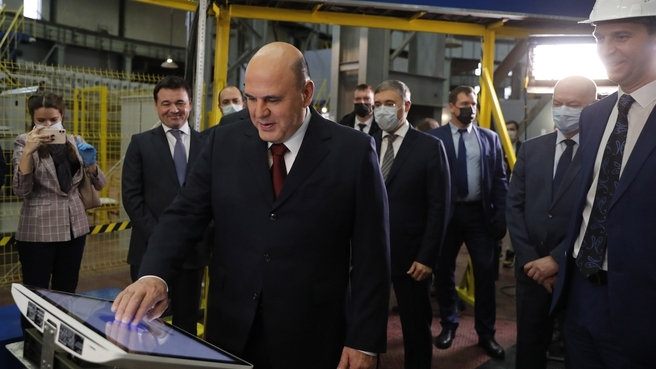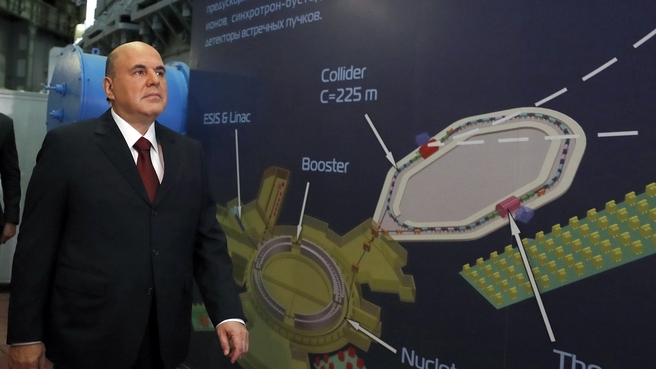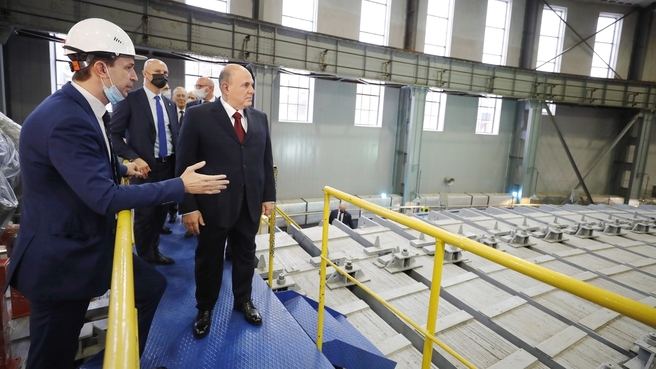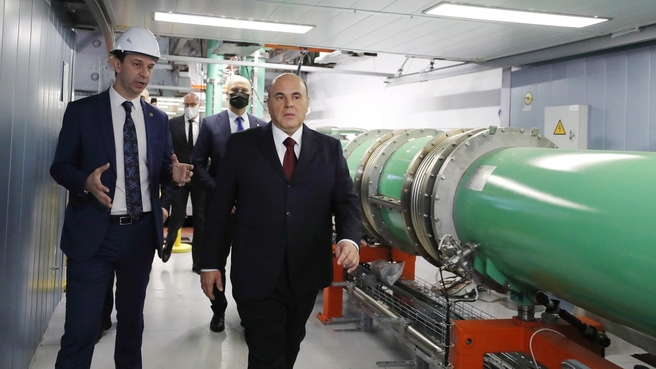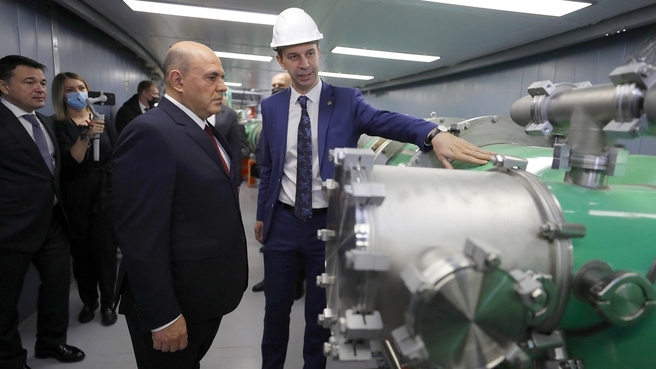During his working trip to Dubna, the Prime Minister visited the Joint Institute for Nuclear Research and attended the launch ceremony of the first cascade of the NICA complex, namely, a superconducting accelerator/booster.
The mega-science class Nuclotron-based Ion Collider Facility (NICA) project has tremendous significance. After the launch of the complex is complete, scientists will be able to recreate the special state of matter called quark-gluon plasma which existed in the Universe immediately following the Big Bang.
The implementation of the project will also make it possible to create a world-class experimental facility for conducting fundamental research on the most topical aspects of modern high-energy physics and for carrying out applied research and development projects in such areas of science and technology as radiobiology and space medicine, cancer therapy, the development of reactors and testing the radiation resistance of electronic devices.
The launch of the NICA complex’s booster is already allowing scientists to use state-of-the-art technologies. The ultra-modern capabilities of using this system’s beams will make it possible to treat complicated malignant tumours (radiation therapy for cancer). The system will also help treat medical physiology problems, caused by long-duration space expeditions, facilitate the processing of waste from nuclear power plants and will be used in testing microelectronics for space satellites. Moreover, it will prove useful in ecology and many other fields.
According to Mikhail Mishustin, NICA, a joint project of the Russian industrial complex and foreign partners, is impressive.
While speaking with Grigory Trubnikov, First Vice-Director of the Joint Institute for Nuclear Research, the Prime Minister noted that Russia should implement more of these projects involving foreign partners and sited in this country.
“A comprehensive model for cooperation between authorities of all levels, the advanced science and production complex, the special economic zone and an international scientific organisation has evolved in this academic town. This situation is unique. Not only does the Government support these academic town models, but it is formulating new mechanisms to facilitate their creation and development,” Mikhail Mishustin said.
While visiting the Joint Institute for Nuclear Research, the Prime Minister met with young scientists and spoke with senior managers of the core enterprises in Dubna.
